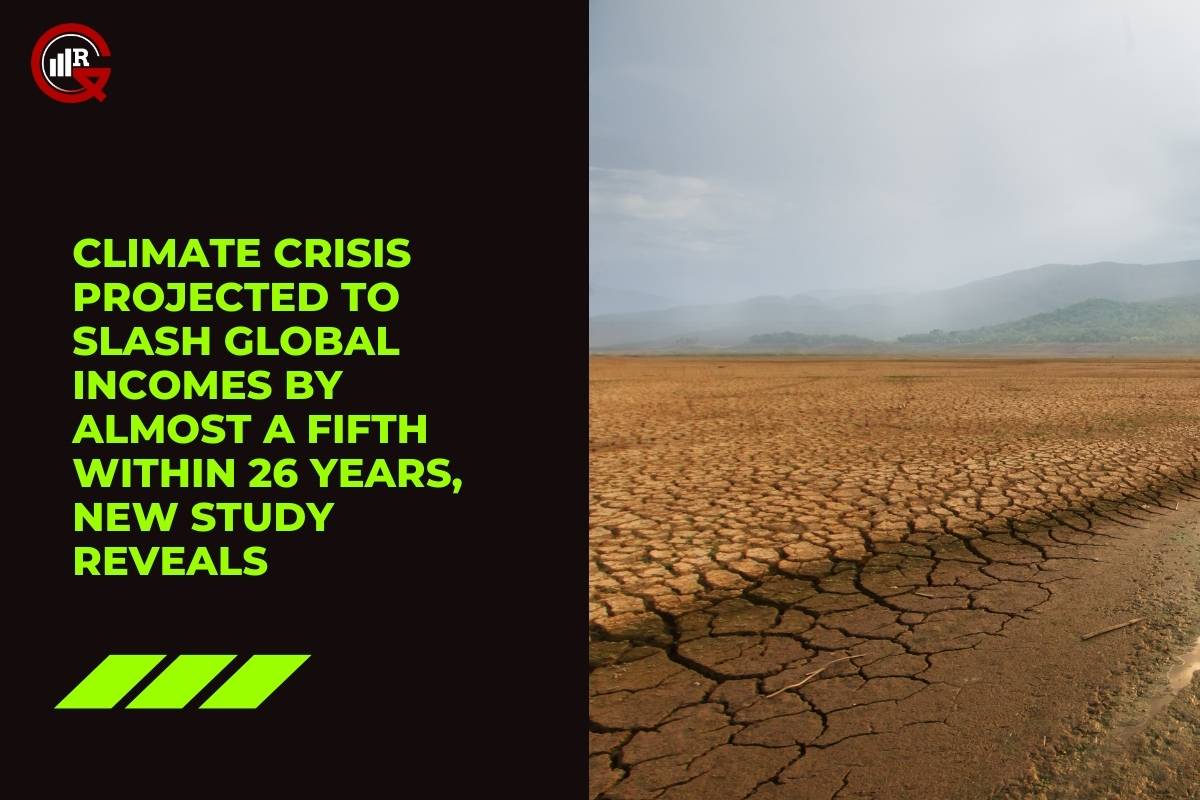A groundbreaking study published in the journal Nature has unveiled alarming projections regarding the economic impacts of the climate crisis. According to the research, average incomes worldwide are poised to plummet by nearly a fifth within the next 26 years, with the costs of damage six times higher than the price of limiting global heating to 2°C.
The study, described as the most comprehensive analysis of its kind ever undertaken, paints a grim picture of the future, foreseeing a staggering $38 trillion (£30 trillion) in destruction each year by mid-century. This dire scenario is attributed to rising temperatures, heavier rainfall, and the increased frequency and intensity of extreme weather events.
The world economy is on track to incur crippling losses
The findings shed light on the profound consequences of the colossal emissions that have been released into the atmosphere from the burning of fossil fuels and deforestation. As a result, the world economy is on track to incur crippling losses, with almost every country bearing the brunt of the impact, exacerbating existing inequalities.
Notably, the study reveals that the permanent average loss of income worldwide is expected to reach 19% by the year 2049. While the reduction in the United States and Europe is projected to be around 11%, regions such as Africa and South Asia are forecasted to suffer a staggering 22% decline, with some countries experiencing even higher losses.
Leonie Wenz, a scientist at the Potsdam Institute for Climate Crisis Impact Research and one of the study’s authors, expressed shock at the magnitude of the damages, particularly highlighting the exacerbation of inequality. “It’s devastating,” she remarked, underscoring the urgent need for action to address the climate crisis.
The global community grapples with the profound challenges ahead
Looking ahead to the second half of the century, the study emphasizes that human actions can still make a significant difference. If current trends persist, the authors warn of income losses exceeding 60% by 2100. However, if emissions are drastically reduced to net zero by mid-century, income declines could stabilize at around 20% by mid-century. The economic repercussions outlined in the study far surpass any previous analyses, serving as a stark reminder of the urgency to curb emissions and mitigate the impacts of climate change. As the global community grapples with the profound challenges ahead, the study underscores the imperative for bold and concerted action to safeguard both the environment and the economy for future generations.






